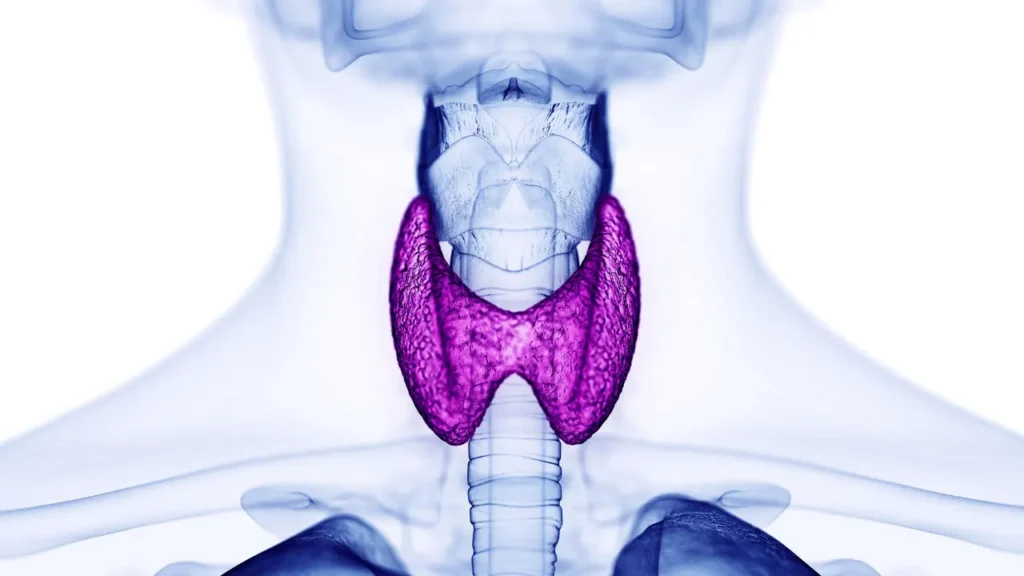One trace mineral that is absolutely necessary for many bodily physiological functions is Selenium. Its significance for health has long been acknowledged, particularly in relation to immune system function, thyroid hormone metabolism, and antioxidant qualities. The purpose of this article is to examine Selenium’s properties, health advantages, ideal dosage, adverse effects, possible drug interactions, and responsible use as a nootropic supplement to improve attention, alertness, and cognitive function.
You May Also Like:
Arsenic: Benefits, Dosage, Side Effects, Drug Interactions, And Other Important Information
Selenium: Benefits, Dosage, Side Effects, Drug Interactions, And Other Important Information is an original (NootropicsPlanet) article.
Nature of Selenium
There are various organic and inorganic forms of Selenium. Selenomethionine and selenocysteine are found in organic forms in foods such as wheat, seafood, and Brazil nuts. In water and soil, inorganic forms like selenite and Selenium are frequently found. After being consumed, Selenium is converted into selenoproteins, which are necessary for the metabolism of thyroid hormone, the antioxidant defense system, and redox signaling pathways.
Selenium can exist in several oxidation states, and its biochemistry is distinct. As a result, it can take part in redox processes, which are crucial for avoiding oxidative stress and preserving the integrity of cells. Of special note is the function of Selenium as a cofactor for the enzyme glutathione peroxidase. This enzyme prevents oxidative damage to cells by reducing hydrogen peroxide and organic hydroperoxides to water and alcohols, respectively.
Health Benefits of Selenium
Due to its antioxidant qualities, Selenium is essential for preventing oxidative stress, which is linked to a number of chronic illnesses, such as cancer, heart disease, and neurological conditions. Due to the fact that Selenium-containing enzymes transform thyroxine (T4) into the more active triiodothyronine (T3), which affects growth, metabolism, and body temperature regulation, its role in thyroid hormone synthesis and metabolism is also critical.
Selenium is also beneficial to the immunological system. Insufficient Selenium intake has been associated with compromised immunological responses, whereas sufficient Selenium consumption can boost immunity and possibly lessen the intensity of viral infections. Furthermore, Selenium plays a role in maintaining brain health. Because of its antioxidant qualities, the brain may be shielded from oxidative stress, improving cognitive abilities, and lowering the risk of neurodegenerative illnesses.
The interest in Selenium as a nootropic stems from its potential to enhance brain function by reducing oxidative stress and inflammation, thus potentially improving alertness, focus, and cognition. Although direct evidence supporting Selenium’s role as a cognitive enhancer is limited, its overall benefits for brain health suggest that maintaining adequate Selenium levels may contribute to improved cognitive functions.

Chemistry of Selenium
Selenium’s unique chemical properties stem from its position in the periodic table. It is a member of the chalcogen group, which also includes oxygen and sulfur. Selenium can exist in several oxidation states (from -2 to +6), but in biological systems, it is most commonly found in the -2 (selenide, Se2-), +4 (selenite, SeO3^2-), and +6 (selenate, SeO4^2-) oxidation states.
The most biologically relevant form of Selenium is the selenide ion (Se2-), which is incorporated into selenocysteine, the 21st amino acid. Selenocysteine is incorporated into selenoproteins during translation, a process that involves a unique tRNA and specific enzymes, distinguishing it from the incorporation of standard amino acids. This incorporation into selenoproteins is critical for Selenium’s biological activity.
Physiological Mechanisms of Action
Antioxidant Defense
The main way that Selenium works is by acting as a cofactor for the glutathione peroxidases (GPx) family of selenioenzymes, which catalyze the reduction of organic hydroperoxides and hydrogen peroxide (H2O2) to water and the corresponding alcohols. This procedure is essential for preventing oxidative damage to cells. Selenium-containing GPx enzymes protect lipids, proteins, and DNA from damage by lowering the production of reactive oxygen species (ROS), which is crucial for maintaining the integrity and functionality of cells.
Thyroid Hormone Metabolism
Moreover, thyroid hormone metabolism depends on Selenium. Another family of selenoenzymes called iodothyronine deiodinases is responsible for controlling the breakdown of thyroid hormones and catalyzing the change from thyroxine (T4) to the more active triiodothyronine (T3). These enzymes are essential for regulating development, growth, and differentiation as well as for preserving the metabolic rate. Due to the decreased activity of these enzymes, a Selenium deficit can result in compromised thyroid function, underscoring the critical role Selenium plays in thyroid hormone metabolism.
Immune Function Enhancement
Numerous methods allow Selenium to improve immunological function. Immune cells’ redox state is regulated by seleniproteins, which has an impact on the cells’ ability to proliferate, differentiate, and function. Sufficient amounts of Selenium facilitate the generation of antibodies, augment the growth of T-cells, and elevate the functionality of natural killer cells, thus elevating the innate and adaptive immune responses. Additionally, Selenium controls the synthesis of cytokines, which are essential for the immune system’s reaction to inflammation and infection.

Optimal Dosage of Selenium
The optimal daily intake of Selenium depends on age, sex, and health status. The National Institutes of Health (NIH) suggests that the recommended dietary allowance (RDA) for adults is 55 micrograms (μg) per day. However, the upper intake level (UL) is set at 400 μg/day for adults to prevent the risk of Selenium toxicity, which can occur with higher doses.
Side Effects of Selenium
Although too much Selenium is detrimental to health, too much of it can cause selenosis, or Selenium toxicity. Selenosis can cause moderate nerve damage, gastrointestinal distress, hair loss, white blotchy nails, and garlic breath odor. Prolonged excessive Selenium consumption may also raise the chance of developing type 2 diabetes and some types of cancer.

Potential Substance Interactions
Supplements and pharmaceuticals, among other substances, may interact with Selenium. For instance, excessive Selenium dosages may make anticoagulant medications less effective, which raises the risk of bleeding. The relationship between Selenium and other minerals, such iodine and copper, should also be taken into account, as imbalances may impact antioxidant defenses and thyroid function.
Best Responsible Use
To ensure the best responsible use of Selenium, especially for those interested in its nootropic benefits for enhancing alertness, focus, and cognition, the following guidelines should be considered:
- Adhere to Recommended Dosages: The recommended dietary allowance (RDA) for Selenium for adults is 55 micrograms (μg) per day, with an upper intake level (UL) set at 400 μg/day to prevent toxicity. It’s essential that you stay within these guidelines to avoid adverse effects.
- Monitor Intake from All Sources: Be aware of Selenium intake from both dietary sources and supplements. Foods like Brazil nuts, fish, and whole grains are rich in Selenium. When using supplements, ensure they do not cause total intake to exceed the upper limit.
- Consult Healthcare Providers: Before starting Selenium supplementation, especially for nootropic purposes, consulting with a healthcare provider is crucial. This is particularly important for individuals with pre-existing health conditions or those taking medications, to avoid potential interactions.
- Be Aware of Symptoms of Overexposure: Recognize the signs of Selenium toxicity, such as gastrointestinal upset, hair loss, and nail changes. If these symptoms occur, reduce Selenium intake, and seek medical advice.
- Evaluate Efficacy and Safety Continuously: Regularly assess the effectiveness of Selenium supplementation on cognitive function and overall health. Be open to adjusting or discontinuing use based on these evaluations and new scientific evidence.
Selenium:
Conclusion
Selenium is a powerful substance. In certain doses, it is a healer and fortifier. In other doses, it can cause hair loss, nerve damage, and other symptoms. It is both a vital mineral and a dangerous substance. Please be cautious and take professional advice when considering supplementation. Selenium can boost your immune system, help your metabolism, thyroid, prevent oxidative stress, and more. You can take this as a supplement or get it from your diet from the consumption of foods like wheat and others.

References:
- “Importance of Selenium and selenoprotein for brain function.” Retrieved from: https://pubmed.ncbi.nlm.nih.gov/26398431/#:~:text=Selenium%20is%20vital%20for%20the,amyotrophic%20lateral%20sclerosis%20and%20epilepsy
- “Selenium and the brain: a review.” Retrieved from: https://pubmed.ncbi.nlm.nih.gov/11842884/
- “What is Selenium?” Retrieved from: https://www.webmd.com/a-to-z-guides/supplement-guide-Selenium
Important Note: The information contained in this article is for general informational purposes only, and should not be construed as health or medical advice, nor is it intended to diagnose, prevent, treat, or cure any disease or health condition. Before embarking on any diet, fitness regimen, or program of nutritional supplementation, it is advisable to consult your healthcare professional in order to determine its safety and probable efficacy in terms of your individual state of health.
Regarding Nutritional Supplements Or Other Non-Prescription Health Products: If any nutritional supplements or other non-prescription health products are mentioned in the foregoing article, any claims or statements made about them have not been evaluated by the U.S. Food and Drug Administration, and such nutritional supplements or other health products are not intended to diagnose, treat, cure, or prevent any disease.


